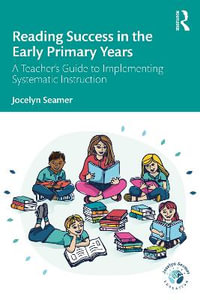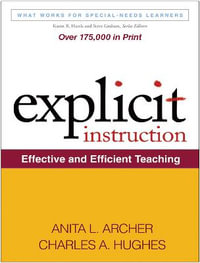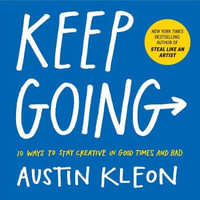Good writing begins with good reading. This book is written on the premise that students must embrace reading as a part of the full process of good writing. It may be used by classroom teachers (Grades 6-12) individually or collectively as members of a professional learning community, by pre-service teachers in a literacy course, or by other educators working to support literacy in the classroom. Interdisciplinary discussions relate to all types or genres of reading and writing.
This book offers practical lessons and ideas for teaching and motivating all learners using Universal Design for Learning principles. Formatting provides additional ideas for challenged students, including students with special needs, accelerated learners, and English Language Learners, and is aligned with Common Core State Standards for content subjects as well as for language arts. It takes ideas that were formerly reserved for the upper echelon of students in English language arts and reformulates teaching approaches to reach students across the learning spectrum and in all disciplines. All teachers need to be involved in raising the literacy bar, and this book provides activities and strategies for use in the classroom that can promote success for all learners.
Industry Reviews
The authors of Reading with Writing in Mind have written a book that will help teachers and students understand the importance of academic literacy across all content areas. However, they don't stop by simply telling us about the importance of literacy-they show us how to achieve that goal. Reading, writing, and critical thinking are woven together and framed by instructional support tools: strategy lessons, instructional design, help for students who need extra support, and assessments. As an added bonus, the book is filled with a wide variety of texts and links to give teachers an opportunity to find ways to apply these tools in their own classrooms. -- Janet Allen, international researcher, writer, and consultant in schools and districts involved in rethinking their approaches to literacy and learning
This book reminds us that building students' literacy skills can and must be done by educators in every discipline. By including many specific strategies and real classroom examples, Charron, Fenton, and Harris provide all teachers with resources needed to integrate the teaching of literacy in any content area. -- Susan Szachowicz, Senior Fellow, International Center for Leadership in Education
This text is an immensely useful and enlivening overview of techniques and tools that teachers in all content areas will find useful in doing their disciplinary work. The unique contribution of this book is the promotion of wide-awake reading in service of developing competent and reflective writers of all kinds of texts. The approach starts with the foregrounding of purpose, and is highly motivating and assistive in ways that will transform teacher practice-but even more importantly-that will transform student attitudes, engagement, and achievement. -- Jeffrey D. Wilhelm, Distinguished Professor of English Education at Boise State University; Author of "Reading Unbound: Why Kids Need to Read What They Want, and Why We Should Let Them"
The instructional strategies in this thoughtful and engaging book support the reading/writing connection and remind us that in order to become confident and competent readers and writers, students need to write frequently and think critically across the content areas. -- Carol Booth Olson, Director of the UCI/National Writing Project and Associate Professor in the Department of Education at the University of California, Irvine
This wonderful book-rich in both ideas and practices-addresses the core problem in American education: how to set (and reach) high standards for a broad range of students. While focused on writing, this book recognizes and illuminates the essential interconnections of multiple literacies and the essential value of student diversity. Written be insightful and creative teachers, the book is not just about writing, it is a book that elevates what teaching should, and can, be. -- David Rose, developmental neuropsychologist, educator, and co-founder of CAST-an organization devoted to promoting Universal Design for Learning (UDL) principles


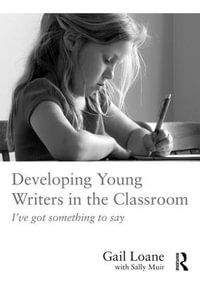

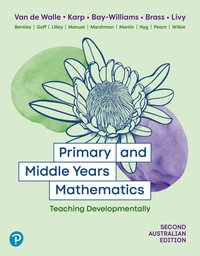
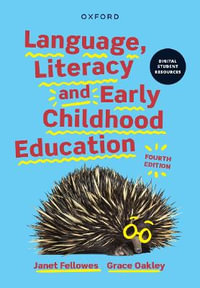
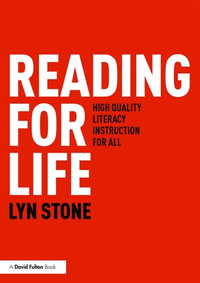

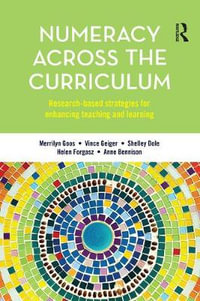
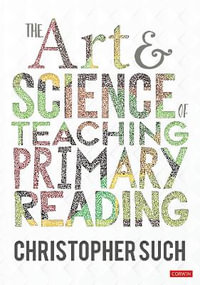

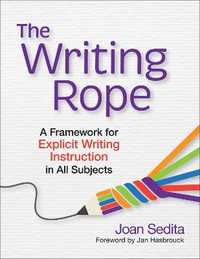
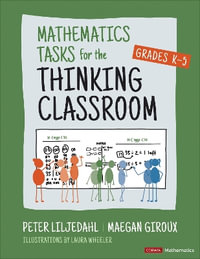
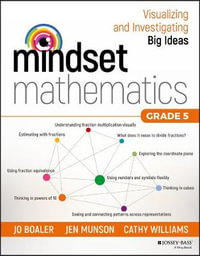



![Collins World Atlas : Paperback Edition [13th Edition] - Collins Maps](https://www.booktopia.com.au/covers/200/9780008320416/6208/collins-world-atlas.jpg)

